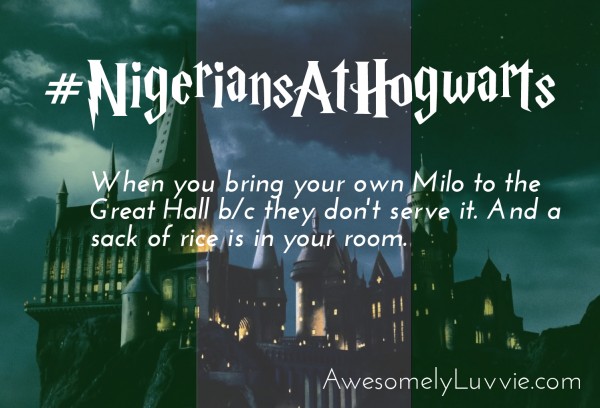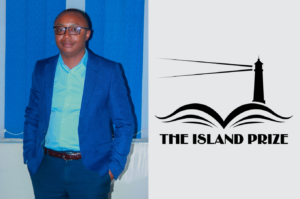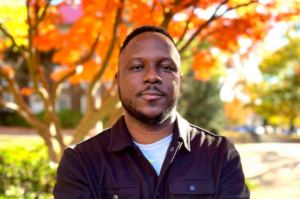The month of August opened with a literary phenomenon that took Nigerian Twitter by storm. Wale Lawal sent out a series of tweets in which he imagined what it would be like if there were Nigerian students in Hogwarts—that legendary wizarding boarding school where much of J. K. Rowling’s fantasy series is set.
Fellow Nigerian fans of the Harry Potter series chimed in and pretty soon assembled a barrage of ridiculously funny tweets that captured different aspects of Nigerian life.
Most of the tweets draw attention to the hyper-religious streak in Nigerians, the belief in magic and witchcraft, but some also explored parent-children relationships, generational disconnect, and societal expectations. [Click HERE to read!]
The hashtag allowed a vast community of young Nigerian readers to talk about themselves. But what is truly remarkable about these kinds of literary experiments is the interesting things they do with storytelling. #NigeriansAtHogwarts is essentially a Nigerian retelling of Rowling’s very English story.
Intrigued and enormously in love with the hashtag and the responses in inspired, we decided to interview Lawal.
His endlessly brilliant responses to our questions touch on why Nigerians love Harry Potter, how magic and fantasy conveys reality, and the issues facing the contemporary Nigerian literary scene.
Enjoy!
****
Clearly, Nigerians are such big Harry Potter fans. What do you think is the draw?
We are, as the tweets showed, definitely huge Harry Potter fans and so it surprised and, to be honest, even annoyed me when I came across comments in the style of “I didn’t even know Nigerians knew Harry Potter”. Now, of course, that is no Nigerian’s fault. And, I don’t know, ignorance ought to be embarrassing but the rate at which people announce ignorance these days, and so arrogantly, makes me think the shame of it skipped our generation.
I think the draw is, primarily, the magic. I was beyond obsessed with the book, growing up, but what held me to the story was the possibility of memorising new spells. And there were many of us, who did that. You couldn’t do anything with the spells of course, but knowing them and knowing them by heart made it feel like you were, somehow, part of the story or that the story was part of you and, therefore, indeed real.
And Nigerians are obsessed with magic or the mystical – I have a friend who is writing her thesis on witchcraft, which I cannot wait to read. And, of course, there is Nollywood. When I was much younger, there was the popular radio programme, “Nkán Bẹ” the sole purpose of which was to educate the public about the dark wonders of the world, the unseen mysteries. Till date, nobody knows exactly how or why Nkán Bẹ ended, except that the host suddenly passed away after exposing what he claimed were the secrets of Nigerian witchcraft.
What was the inspiration for the hashtag? Did you expect it to catch on as wildly as it did?
It all began with an armadillo. I was reading about a man from Texas who tried to shoot an armadillo but ended up shooting himself (the bullet bounced back). For some reason, the back-to-sender motif of the story made me think of my mother, who is Ijebu-woman-serious about prayer. Several thoughts after, it occurred to me that if, for some reason, I were at Hogwarts, and let me be specific, part of Dumbledore’s Army, in the Room of Requirement, as Harry taught us how to conjure our patronuses, my mother would not have been impressed by me wresting her from Africa Magic Yoruba to show her off to my English friends.
Then I wondered what it must have been like to be Nigerian at Hogwarts, you know, with all our gra-gra and wahala. Those questions one would have had to face, the “do you live with lions?” and so forth.
No, I did not expect the hashtag to be as popular as it became. I hoped it would catch on. More than that, I hoped people would do with it as they pleased – which, thankfully, they did.
There is a Nigerian in Harry Potter, right? The character named Bem, born in the UK to Nigerian parents.
Yes, Bem! This was for my man, Bem but, more importantly, it was for the unnamed characters who, like myself and many people I know, came to England ridiculously young as foreign boarding-school students and experienced all the voltages culture shocks have to offer.
What do you think is significant about using Harry Potter to talk about certain aspects of Nigerian life?
I think Nigerians today, young Nigerians especially, have moved past proverbs. We simply do not have the patience for old-speak. Humour is the palm oil with which today’s serious words are eaten. Over the years, people have followed my Twitter account because of the jokes I tell, all of which are very serious or about very serious things, from corruption to religious exploitation, but crafted in such a way that enables one to smile through the suffering.
Out there in the world is a wonderful biography by Andrew McConnell Scott of the famous English comedian, Joseph Grimaldi. Grimaldi symbolizes, to me, the seriousness of humor. He is best remembered as a clown, an excellent nineteenth century entertainer, but behind all of that, he lived a terrible, terrible, life.
#NigeriansAtHogwarts allowed me the freedom to discuss topics ranging from immigration to micro-aggression. I think it enabled all of us that tweeted to cast reality onto the imagined and to see and, perhaps, even enjoy the ridiculousness of our own world.
You think Dementors are ugly? Wait till you meet the folks at the UK Border, as a Nigerian.
Are these kinds of viral hashtags (I’m thinking #IfAfricaWasABar, #beingfemaleinnigeria, etc) just about the humor and the wit? Or is there more to them?
The viral hashtags are all different in their aims and how they eventually perform. The humour is necessary; it is the helium that allows the story to float. But what keeps each of these viral hashtags grounded in reality, what makes them perform, are the truths they explore. And so, more to them are these individual truths, the confessions that escape discreetly, the possibility that this, what I am reading in this tweet, could have happened to someone. That my-goodness-moment. And the mother of all moments: when you catch the truth behind that hashtag or that one tweet because something similar had once happened to you. There will be humor and wit, but there will always be more because there is me sending tweets from the confines of my world, but there is also you in your own world going about your business and, once in while, that one truth that makes us look up at the same time.
Given the Nigerian obsession about witches and wizards, why can’t we come up with something like Harry Potter?
Because we aren’t ready to work yet. For those types of stories, I think. The closest we have come in contemporary Nigerian literature, is through works like Ben Okri’s and, perhaps, Nnedi Okorafor’s. Let me digress. Think briefly of D. O. Fagunwa’s novels, the paintings of Twins Seven-Seven and even several films of Tunde Kelani; or, to expand, of Sembène Ousmane and what he did with “magic” in Xala. I think why they succeed at portraying the “mystical”, why I enjoy these works and keep running back to them is because of what they do with the truth. How heavily-invested they are in ensuring that there is some element of relatable truth. That is, the truth of their respective times. And there must be balance. Magic only exists against the absence of magic; the magical world against the world of muggles; fantasy against truth; fiction against fact.
Nowhere is the truth more necessary than in writing “fantasy”; in fact, I remember Ben Okri arguing after The Famished Road was published that there is no such thing as magical realism in Nigeria because, for us, the magical is real. I agree. If anything, this makes it tougher to expose Nigerian magic to Nigerians, but did Toni Morrison not say it is the writer’s role to mystify the mundane?
To be frank, a lot of my dissatisfaction with contemporary Nigerian literature stems from, as a Nigerian reader, finding little to no rigorous truth in them. Too many of the works I read are, simply, not speaking to me. I often feel like I am intruding on a conversation between a Nigerian and his or her Western friend who does not really know Nigeria and so, needs to be corrected constantly or laboriously explained to. J. K. Rowling wrote distinctly for the English ear. I remember the joys of picking dictionaries, doing my own research – she did not explain England to me, she did not even notice that I was there but she gave me the opportunity to discover England for myself. However, I suppose writing for the Nigerian ear is not easy, maybe that is why.
Here is a link where Soyinka expresses his admiration for Rowling’s work: https://brittlepaper.com/2015/04/wole-soyinka-harry-porter/Are you surprised by that?
I have watched him express his admiration of Rowling’s work numerous times and so, I am not surprised. He himself lives a remarkably quiet life, these days, which attracts its own mystery. More so, the Professor is fond of comparing writers with sorcerers, something, which, believe it or not, makes me want to write full-time someday. I, too, would like to get paid for being wicked. On a more serious note, I discovered Fagunwa, for instance, through Soyinka. I read Soyinka’s translation of Forest of A Thousand Daemons, which, he admitted, could not match the original, Ògbójú Ọdẹ nínú Igbó Irúnmalẹ̀ So, I read the Yoruba version, and saw that it was true. English does not bend the way Yoruba does. They are two different technologies.
***************
The image is courtesy of awesomelyluvvie.com










M. Lachi September 10, 2015 15:12
I do find this dichotomy--an obsession with witchcraft and wizardry yet a lack of said concepts in much Nigerian literature,--to be an interesting one indeed, especially considering the fact that the country is known for intelligent writing and competitive youth. With Vodun being so interesting and multifaceted yet so misrepresented in Western culture, I feel a Fantasy novelist, whether Nigerian or not, could capitalize upon the void and write a superb, mystical, horror-filled novel full of Wizardy, Vudon, and Nigerian culture.